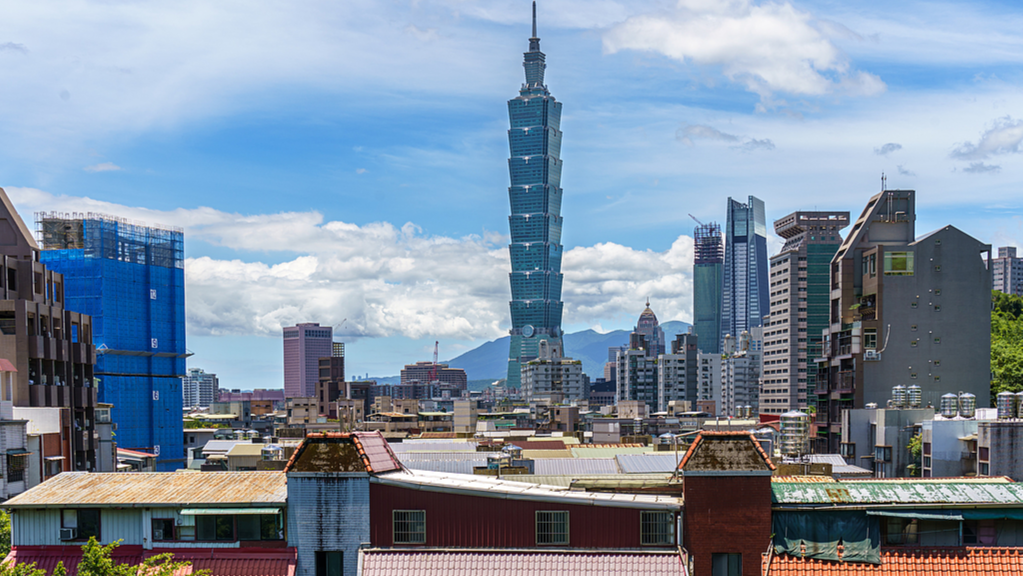
BEIJING - The Chinese mainland on Wednesday said that Lai Ching-te's actions since taking office as Taiwan's leader have fully proven that he is a "saboteur of peace" and a "crisis maker" across the Taiwan Strait.
Chen Binhua, a spokesperson for the State Council Taiwan Affairs Office, made the remarks during a press conference, as Lai Ching-te is about to complete his first year in office as Taiwan's leader.
The Lai authorities have defied mainstream public opinion in Taiwan, refused to acknowledge the 1992 Consensus, and obstinately adhered to a separatist "Taiwan independence" stance, Chen said.
READ MORE: Chinese mainland slams Lai Ching-te's 'two states' comments
The Lai authorities have wantonly advocated the fallacy of separatism and suppressing cross-Strait exchanges, and fabricated a false "democracy versus authoritarianism" narrative to mislead both people of Taiwan and the international community, he added.
Disregarding economic realities, the Lai authorities also advocated a decoupling of cross-Strait trade and industrial supply chains, which harms the interests of Taiwan businesses and people, the spokesperson said.
Furthermore, the Lai authorities have sought to curry favor with external forces and betrayed Taiwan's interests in pursuit of "independence through external support" and "independence through force," he said.
Such actions, Chen said, have escalated tensions and undermined peace across the Taiwan Strait, fully proving that Lai is a "saboteur of peace" and a "crisis maker" across the Strait.
"Taiwan has been an inalienable part of China, and no words or deeds from Lai can alter this fact," he said. "No matter how the situation on the Taiwan island evolves or what troubles external forces may make, the historical trend toward China's ultimate and inevitable reunification is unstoppable."
READ MORE: Lai Ching-te would best not obfuscate the Taiwan question
The spokesperson called on Taiwan compatriots to stand on the right side of history and join efforts to oppose "Taiwan independence" separatist activities and foreign interference, safeguard the shared homeland of the Chinese nation, and work together toward national reunification and rejuvenation.
Chen condemned attempts by the Democratic Progressive Party (DPP) authorities to push "de-Sinicization" and sever the historical and cultural ties between the two sides of the Taiwan Strait.
Chen made the remarks at a press conference in response to the DPP authorities' recent act of reclassifying people of the Han ethnic group as the island's "other" population in its official demographic data.
Earlier this month, Taiwan's executive body revised demographic information on its official website, removing the term "Han people" and replacing it with "other populations."
READ MORE: Cross-Strait relations strain after 'pro-independence' stance
The revision erased explicit recognition of the Han people -- Taiwan's largest ethnic group, which has been the island's majority demographic for centuries.
"It is completely absurd and ridiculous," Chen said. "How can those who carry out such acts, particularly those counted as the so-called 'other populations', face their ancestors without shame?
Chen reiterated that people on both sides of the Strait share the same bloodline, culture and historical heritage, and all belong to the Chinese nation, pledged efforts to promote extensive solidarity with Taiwan compatriots to advance cross-Strait relations and create unstoppable momentum toward national reunification.
"We will uphold the one-China principle and the 1992 Consensus, take resolute measures against 'Taiwan independence' provocations, advance cross-Strait exchanges, deepen integrated development, and firmly oppose external interference," Chen said.
Taiwan has been an inalienable part of China since ancient times, with historical and legal facts that are clear and indisputable, the spokesperson noted.
A series of instruments with legal effect under international law, including the Cairo Declaration, the Potsdam Proclamation, and the Japanese Instrument of Surrender, have all confirmed China's sovereignty over Taiwan. The United Nations General Assembly (UNGA) Resolution 2758, adopted in 1971, fully reflects and solemnly affirms the one-China principle, namely there is only one China in the world and Taiwan is part of China, Chen stressed.
READ MORE: Mainland slams Taiwan leader's latest 'motherland fallacy'
Upholding the one-China principle and firmly opposing "Taiwan independence" attempts, as well as external interference, is an inherent requirement for safeguarding national sovereignty, territorial integrity, and defending core national interests, Chen said.
The adherence to these principles is also a commitment to upholding international fairness and justice, preserving the outcomes of World War II, and maintaining the postwar international order, he added.
The international community should respect historical facts and the authority of UNGA resolutions, and demonstrate understanding for and extend support to the Chinese government and people in their just cause of opposing "Taiwan independence" separatist activities and striving for national reunification, Chen stated.


